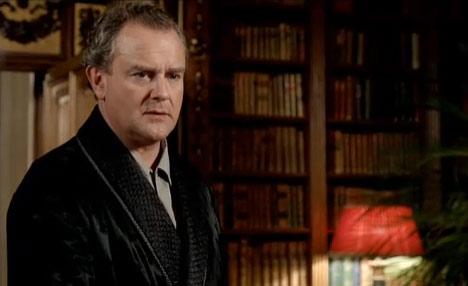See our Magnum Photos gallery on the English countryside.
Shrimpy and Poppy,
Our readers have been hard at work addressing Seth’s question of how Matthew’s tragic impotence might affect the Crawleys’ estate planning, and the answers are pretty darn interesting. (Spoiler alert from the future of the past!) Check out the last thread in these comments for details far beyond my comprehension—I spent every day up til today conflating “the entail” and “entrails” in my mind and giggling every time anyone mentioned it —but the upshot seems to be that the Administration of Estates Act, due to be passed in 1925, may eliminate all entails. If that’s the case, Lord Grantham may be able to leave his estate to anyone he likes—presumably, by 1925, to the illegitimate son of the new maid, Jane, whose weepy response to a simple word of kindness from Robert Crawley set commenters’ tongues a-wagging. Between that weird interaction and Cora’s brusque explanation that she’s too busy for a social engagement, are we being set up to believe that Lord Grantham is about to take up with the help?
Another question raised in the comments echoes one my noble wife and I asked during this week’s episode: Did we miss something about Anna and Bates? I ask only because I could’ve sworn that, as the two downstairs lovebirds entered the church to pray for William and Matthew, Bates said, “We should have had a church wedding.” Did I mishear? Did these two impetuous youngsters run off for a quickie wedding in, I dunno, the 1918 U.K. equivalent of Reno? (Blackpool?) It seems unlikely that the show would deny us a glimpse of what would surely be a moving, threadbare affair, but maybe we’re being set up for some shock down the line—delivered, no doubt, by the horrible Mrs. Bates.
Seth, you’re right that she’s turned into a cartoon villain, essentially delivering an “I’ll get you, my pretty” speech when she found out Sir Richard had thwarted her plans. (I think I even see a resemblance!) But every soap opera needs a character who acts purely out of malice for the good-hearted heroes; without Adam Chandler, we wouldn’t love Tad and Dixie so much.
Conceits like the eeeeevil of Mrs. Bates, or the passionate discussions of czars between Sybil and Branson, or O’Brien being struck by remorse and feeling suddenly protective of a woman she assaulted via soap just one season ago, are what make Downton what it is for me: that is, a program that I find almost obscenely enjoyable despite the fact that in many ways it’s quite terrible. Especially viewed in light of the last 10 years, in which television has been transformed from sniffed-at trash to, at its best, rich and complex art—indeed, the preeminent popular art form of our time. Downton seems an odd throwback to an era of proudly square entertainment, in which villains cackle and smoke, heroes suffer but glow from within, and no scene passes without a Very Serious Look.
Is it Breaking Bad? Hell no. But god, I love it.
I hope it is not vulgar of me to suggest that you find some way to overcome your scruples,
Dan
